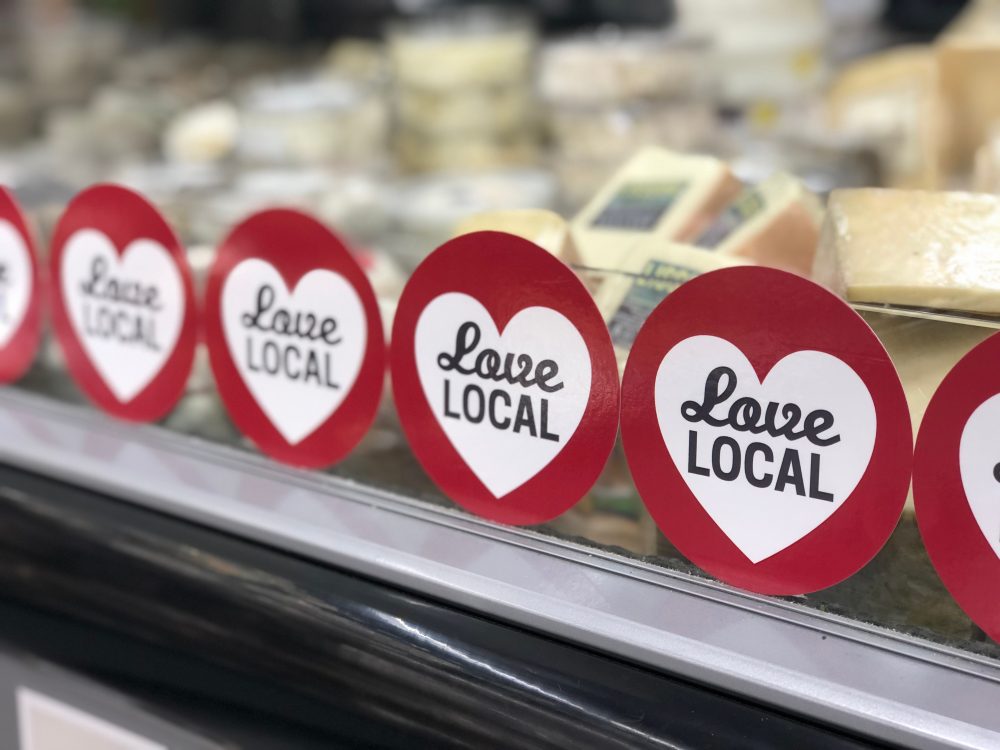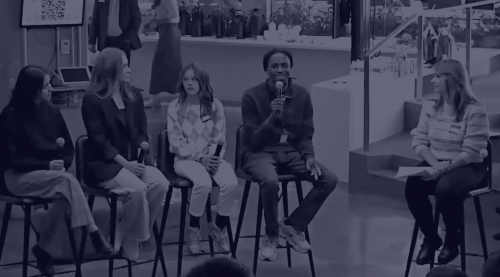The election amplified personal concerns like healthcare access, but rising costs are top of mind.
Lending Hands for the Greater Good
A little over a year into the pandemic, people are still suffering from its damaging effects. Plenty of small businesses are still struggling. BIPOC communities are experiencing higher levels of hate crimes. A lot of families remain food insecure. But there is a glimmer of hope. People and brands are stepping up to change the cultural discourse and take matters into their own hands. In fact, 80% of US adults believe being an active member of their community is a better way to make change than relying on elected officials.* By repurposing and reallocating resources, people and brands are lending a hand to other businesses, marginalized groups, and financially vulnerable communities. Through selfless acts and a passion for the betterment of all, people are activating a Wired for We mindset that focuses on collective power, connection, and mutual support.
With decreased store foot traffic and distancing mandates still in place, frequent high-volume sales are hard to achieve for lots of small businesses. Thankfully, some brands are stepping up to keep these businesses afloat with opportunities for added revenue. Iconic streetwear brand Vans created the Foot the Bill initiative to give local businesses a hand up. The program offers an opportunity for local businesses to partner and profit from exclusive co-branded and custom-designed merch, hosted and sold on Vans.com/footthebill. Every week, new small businesses are selected via an application process to design their own custom shirt and pair of limited-edition Vans shoes, co-branded with their own brand logos. Now both fans of the local shops and Vans lovers can easily support their cherished local businesses, with all net proceeds going directly to the businesses in need. Yes – we want a Vans Nom Wah shirt, too!
Brands are helping foster healthy dialogue, too. As racial justice activists work towards a more equitable society, some brands are incorporating actionable resources into their work. According to a Children and Racism study commissioned by Sesame Workshop, only 23% of parents reported finding useful resources specifically designed to help them prepare for racial discussions with their children. To help bridge the gap, Sesame Workshop (the people behind Sesame Street) developed The ABCs of Racial Literacy as part of their Coming Together initiative on racial justice. Released last month, the first video of the series introduces two Black humanoid Muppets, five-year-old Wes and his dad Elijah, having a discussion with Elmo about the color of their skin. The short video explores a way for families to positively celebrate differences in melanin when confronted with questions around why their skin color looks different from their neighbor’s. Sesame Workshop plans to address other instances of microaggressions throughout the year like coping with racial discrimination while shopping.
Aside from capital and education, other initiatives are geared toward reallocating necessities for people in need. Despite reaching an all-time low food insecurity rate in 2019, the pandemic caused a setback. An estimated 45 million people, including 15 million children, experienced food insecurity in 2020, according to Feeding America. Good-hearted individuals, corporations, foundations, and communities are contributing to mitigate hunger. Nonprofit organization Move for Hunger found a unique solve by partnering with families in the midst of moving homes who often leave food behind. Since their start in 2009, 22 million pounds of nearly trashed food were accumulated, providing over 18 million meals. In 2020, Move for Hunger delivered a record-breaking year with more than 5 million pounds of food saved, providing 4 million meals to those in need. Through partnerships with real estate professionals, relocation management companies, and corporate housing providers across the US, the organization continues to efficiently rally viable food from getting wasted.
Brands can elevate compassion for their communities, too. Thriving big tech companies or other prospering brands can commit to community betterment with “Pay It Forward” corporate perk programs that help local small restaurants make ends meet. Every week, use corporate funds to secure a set of meals for employees to buy back at discounted rates, ensuring small businesses can count on a weekly stream of cash. Consider boosting local shops around corporate building areas as workers slowly return to the office. Spread the word of your helpful deed through PR and by elevating the partner restaurants across owned channels.
Source: *Horizon Media, Finger on the Pulse. Survey fielded 11/11/20-11/17/20, n=864




